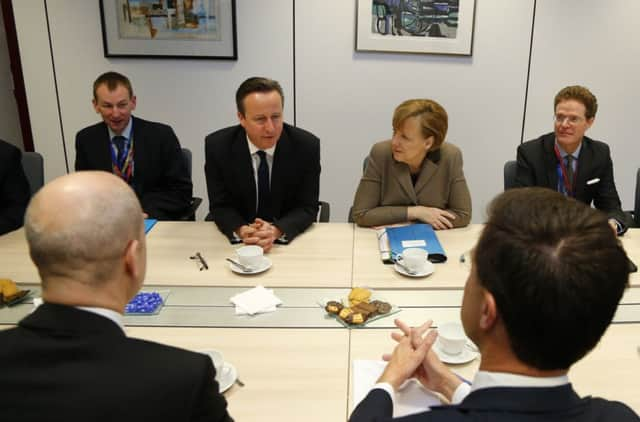Fishing’s key question: What’s the catch?


The independence referendum is a hugely important event for the Scottish fishing industry; if we wake up to a Yes vote on the 19 September there will be some very big changes. Everyone connected with the industry therefore needs a proper evaluation of risk and benefit to properly consider how to vote.
The future relationship with Europe is very significant for many businesses, in particular the fishing industry, with all aspects of our operation currently set by the Common Fisheries Policy (CFP). Paradoxically, if the only consideration for a newly separate Scotland was fishing, the industry would probably be best served by being outside the EU and the tight constraints of the CFP.
Advertisement
Hide AdAdvertisement
Hide AdThe result of the referendum will have hugely important implications for fishing, which means both the Yes and No camps must set out their stalls very clearly. As an organisation, the Scottish Fishermen’s Federation (SFF) is apolitical and can’t advise our members on how to vote, but we do have a duty to demand that both sides bring clarity so that individual fishermen can make their own choices. And because the biggest change is being proposed by the Yes camp, it is here the main onus lies.
If there were a Yes vote, then it can reasonably be assumed that Scotland would eventually end up in the EU, although the process is likely to be protracted and tortuous.
The real question therefore concerns that journey; how long will it take, and will the eventual conditions of membership be better or worse than now? The one certainty is that the 35 chapters of the body of EU law for an independent Scotland are blank and that the Independence White Paper estimate of 18 months for such negotiations is completely unrealistic. Each chapter would need to be negotiated and our own experience from working in Europe suggests that other member states would look for advantage from this hiatus and change.
It is the Scottish Government view that an exclusively Scottish seat in the EU Council of Ministers would be a good thing. At the moment we have in the EU decision-making by majority voting. The UK has 29 votes and given the high population of England, Wales and Northern Ireland, they would probably retain that after separation. Scotland would have seven.
There are arguments on both sides to explore – particularly whether a small voice speaking exclusively for Scotland on fishing would be better than a big one speaking for all the home nations.
And then there is fish quota – it is our raw material; no fish, no industry. The EU allocates it proportionally to each member state and Scotland’s share of UK quota is already roughly defined under an internal arrangement. However, the term “roughly” fits well, because the fine detail of ownership and administration is anything but clear. For an independent Scotland a clear separation settlement would be necessary and, to make a neutral observation, the negotiating circumstances would change from one between partners looking after the collective interest to a divorce-like split between commercial competitors.
This, of course, stirs up even more questions, including:
• Will the present quota allocation regime to the UK be the basis of future allocations to a newly independent Scotland, with the split being decided by the two parties, or will there be two new settlements with the EU, one each for the rUK and Scotland?
• Will Scottish fishing vessels have greater or lesser certainty over their individual quota holdings in the event of independence?
Advertisement
Hide AdAdvertisement
Hide Ad• What access will be available for Scottish vessels to other member or coastal states’ waters in the event of a Yes vote?
• What arrangements will be made for ownership of the seabed?
• There will be a requirement to negotiate on 35 fronts for EU entry. With first sale value of fish for Scotland standing at 0.3% of GDP, what weight will be given to the fishing chapter and what is the risk of a worse-than-now settlement?
• The Scottish Civil Service is structured to deal with executive devolution of fishing. How much expansion of this personnel resource is required to negotiate EU entry, and then set up and run a separate government?
How quickly can that be in place?
These are difficult questions, which will be real and immediate on 19 September if there is a Yes vote.
The fishing industry needs balanced assessments on the impact of independence now – we do not need assertions that everything will be fine from one side, or indeed that we are all doomed from the other.
• Bertie Armstrong is chief executive of the Scottish Fishermen’s Federation www.sff.co.uk
SEE ALSO